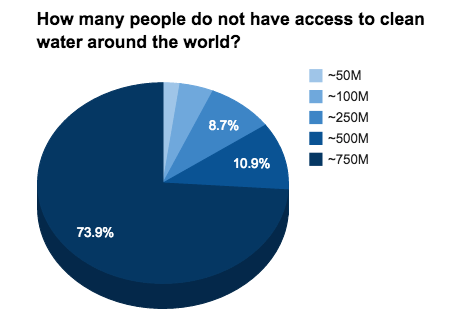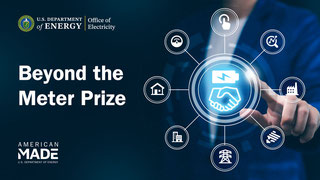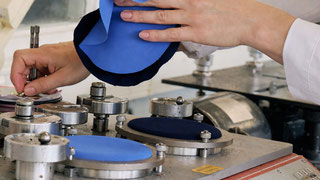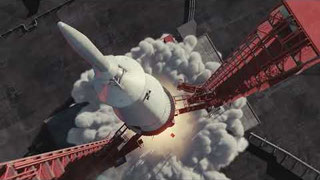According to the World Health Organization, 783 million people do not have access to clean water (approximately 1 in 9). Nearly 2.5 billion do not have access to adequate sanitation (approximately 1 in 3). The largest group facing this problem is in Africa, where 358 million people do not have access to clean water.
This causes a breakdown in social stability. 443 million school days are lost each year due to water-related diseases. Over half of the developing world's primary schools don't have access to water and sanitation facilities. Without toilets, girls often drop out at puberty. Research has shown that for every 10% increase in women's literacy, a country's whole economy can grow by up to 0.3%.
In the US, on average, tap water costs are a little over $2 per 1,000 gallons, with average daily consumption at 176 gallons per person. The average African family uses 5 gallons per day. The average distance that Africans travel to collect water is 4 kilometres per day. Over 40 billion work hours are lost each year in Africa to the need to fetch drinking water. According to the World Health Organization, for every $1 invested in water and sanitation, there is an economic return of between $3 and $34.
These statistics paint a clear picture: improve access to clean water in a community that lacks it and that community will become more stable.
What Are We Doing About It?
We are in the discovery phase of this challenge, to find a prizeable challenge in the space of clean water. What we know so far is that we want solutions to be accessible, affordable, environmentally friendly and powered by a renewable energy source. We have begun interviewing subject matter experts and collecting research and data.
What Can You Do Right Now?
Are you an expert? Or do you know an expert? Please introduce yourself or them to us in our comments tab above.
Have an interesting article or research to share with us? Add it to the comments tab.
Have an idea of what kind of challenge we should create? Let us know in - you guessed it - our comments tab.
Want to contribute but don't know how? Pass this challenge forward by sharing this challenge on your social media feeds. Click the "Share" icon above.









